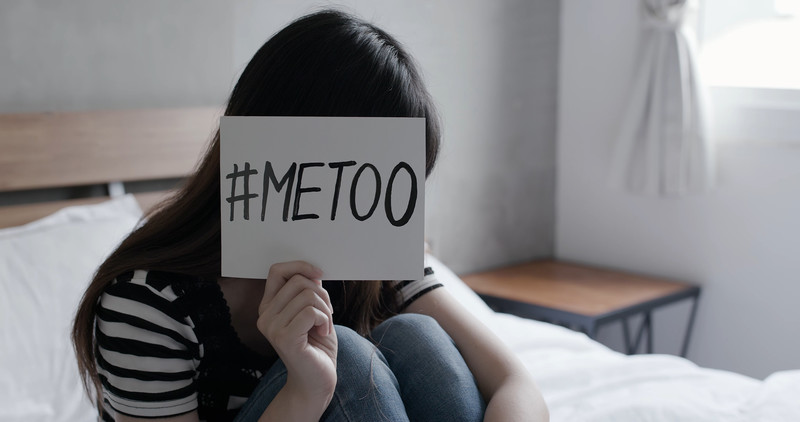by Stephanie Chambers
What is the MeToo movement?
The #MeToo movement (or “Me2”) was started by an American social activist and community organizer called Tarana Burke back in 2006 in an attempt to bring attention to the prevalence of sexual harassment and sexual assault in society.
It rose to prominence in 2017 when it was used on Twitter by Alyssa Milano and and Michael Baker after a number sexual abuse allegations were made against Harvey Weinstein. Alyssa and Michael encouraged women to let people know if they had been subject to similar sexual harassment by Tweeting #MeToo so that people would come to see “the magnitude of the problem”.
Since then numerous women (and some men too) and a number of other celebrities have joined the MeToo movement. It has taken the world by storm and has become prominent in a number of countries, not just America. It has become far more than just a social media phenomenon.
Many women (and some men too) joined the bandwagon and some gave explicit details of the sexual harassment or sexual assault they had been subjected to in the past. Naturally this has caused many women to reflect back on their personal and working lives and to think in general about how they have been treated by men. Some men have also been subject to sexual harassment and abuse and this movement has caused them to bring back disturbing memories.
A positive aspect of the #MeToo movement is that more victims are reaching out to get help. For example, calls to the Rape Abuse and Incest National Network national hotline in Oct-Dec 2017 increased by 23 percent compared with the same period in the previous year.
Of course in doing so, some victims have ended up reliving these traumatic experiences and some have suffered a lot of mental disturbances as a result. This is particularly the case if they have been subject to inappropriate touching or other forms of physical abuse. Others that may have only been subject to jokes, teasing or other verbal abuse may not have felt as traumatized by their memories.
Why you might need counseling for MeToo
Whatever your level of trauma and even if you do not even experience it as trauma, it doesn’t hurt to discuss it with your therapist to make sure it doesn’t have further ramifications. Your counselor can help you process your experiences and find ways to use your experience(s) to help further your own growth and development going forward.
If necessary you can ask your therapist to do more extensive trauma work with you, so that you can stop any lingering Post Traumatic Stress Disorder (PTSD) taking hold. If your counselor doesn’t have the skills to do this work, they can refer you other more therapists within the Ardent Center that have done extensive trauma work.
As Jane McGonigal – a game developer – explained in her TED Talk scientific research on there are four different types of resilience that when practiced can help you to progress even if you have experienced traumatic events like the debilitating concussion she experienced. These behaviors are physical, mental, emotional and social resilience. For example research has shown that:
- Physical resilience: Certain postures like pumping the air with your fists increases positive feelings
- Mental resilience: Achieving even small mental challenges also increases positivity
- Emotional resilience: Consciously making an effort to experience more positive emotions than negative ones
- Social resilience: Reaching out to thank or appreciate other people either physically or emotionally.
Some researchers have found that people can not only become resilient, but they can sometimes even thrive – meaning their lives are even better than they were before the adverse event. This has been called Post Traumatic Growth (PTG). For example, Ramona I. Grad and Melissa Zeligman said in their research paper “Predictors of Post-Traumatic Growth: The Role of Social Interest and Meaning in Life” that “there is also a growing body of empirical evidence that trauma can provide the opportunity for personal and social transformation (i.e., post-traumatic growth)”. They said “Our results suggest that increasing social interest may positively influence and promote PTG. They discuss how social interest can be defined as “A secure sense of belonging and contribution in an intimate social group”.
Both victims and perpetrators of sexual harassment and or sexual assault can benefit from counseling. For example, if you are a man and you know you have subjected women to these sorts of unwanted advances or even other forms of belittling them just because of their gender, it’s not too late to discuss it and find ways to change your behavior towards women going forward. Your counselor may help you look at your underlying beliefs that could be behind your behavior. It’s never too late to change and grow and become more respectful of women and other people in general.
So whatever your situation don’t be afraid to ask for counseling for MeToo. Your therapist can also help you if you want to join the #MeToo movement by formulating your memories, thoughts and feelings into the words you want to express in helping society become aware of how its time for such behaviors to become a thing of the past.

